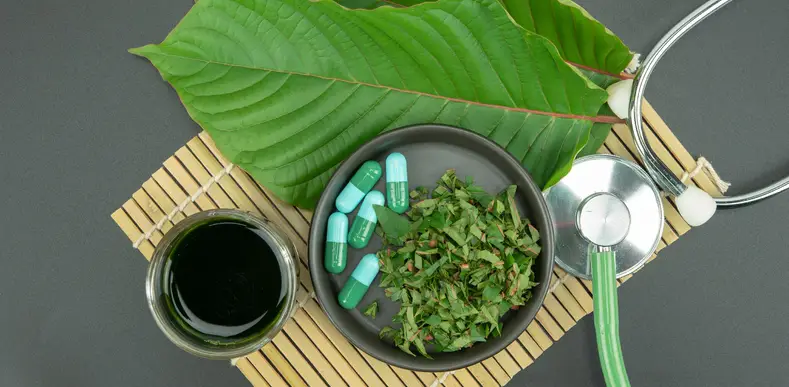The History of Kratom

There is a stimulant extracted from trees in Asia that is having a negative effect on communities in Washington state. Kratom has caused so many problems that the Food and Drug Administration (FDA) has classified it as an opioid that is not safe for medicinal use.
Is kratom a dangerous drug or is it an herbal supplement that helps people wean themselves off stronger opioids? While the debate rages on, the plant is causing problems including salmonella from tainted batches of homemade product.
What is going on with kratom in Washington State?
Where Does Kratom Come From?
Kratom comes from a tree in Southeast Asia, where it has been used for decades as a stimulant. The tree leaves are ground up into a powder and made into tea or chewed. The plant is often used as a painkiller or to help wean people other drugs like opium. People that use kratom say it eases anxiety and depression and is a useful and nonaddictive alternative to other stronger opioids.
The Kratom Controversy
Over the past few years, kratom in Washington state has caused problems and as a result, the Drug Enforcement Administration (DEA) placed the plant on the Schedule I substance list, which classifies it as being on par with heroin, peyote and marijuana. According to the Seattle Times, some legislators want more research to be done to determine if the plant could be helpful in the fight against opioids because kratom has been used as an herbal alternative to methadone. Putting the plant on the DEA’s list of dangerous drugs will make it harder to obtain, both for the people using it and also for researchers considering kratom as an opioid alternative.
In 2014, the FDA banned the import of the plant, saying there were no approved uses for the plant. The agency cited numerous health complaints and, so far, has not wavered in its opposition to the drug.
While the debate rages over the possibility of kratom addiction, homemade batches of the plant caused a salmonella outbreak earlier this year in Washington state. The FDA, along with the Washington State Department of Health, warned consumers not to use the plant in any form. The FDA took the opportunity to warn residents: “Scientific data we’ve evaluated about kratom provides conclusive evidence that compounds contained in kratom are opioids and are expected to have similar addictive effects as well as risks of abuse, overdose and, in some cases, death.”
Kratom: Helpful Medicine or Harmful Drug?
Until more research is done on this plant to determine whether it has any scientific benefit that could help in the war on opioid misuse, local addiction treatment resources advise caution when considering kratom as an opioid alternative.
From worries of salmonella poisoning to concerns about its addiction potential, kratom is a controversial topic in Washington state. If you have reason to believe that kratom misuse has led to the development of a substance use disorder in your case, contact The Recovery Village Ridgefield today to speak confidentially with a compassionate addiction professional, who can discuss with you the treatment options that are available to you.

